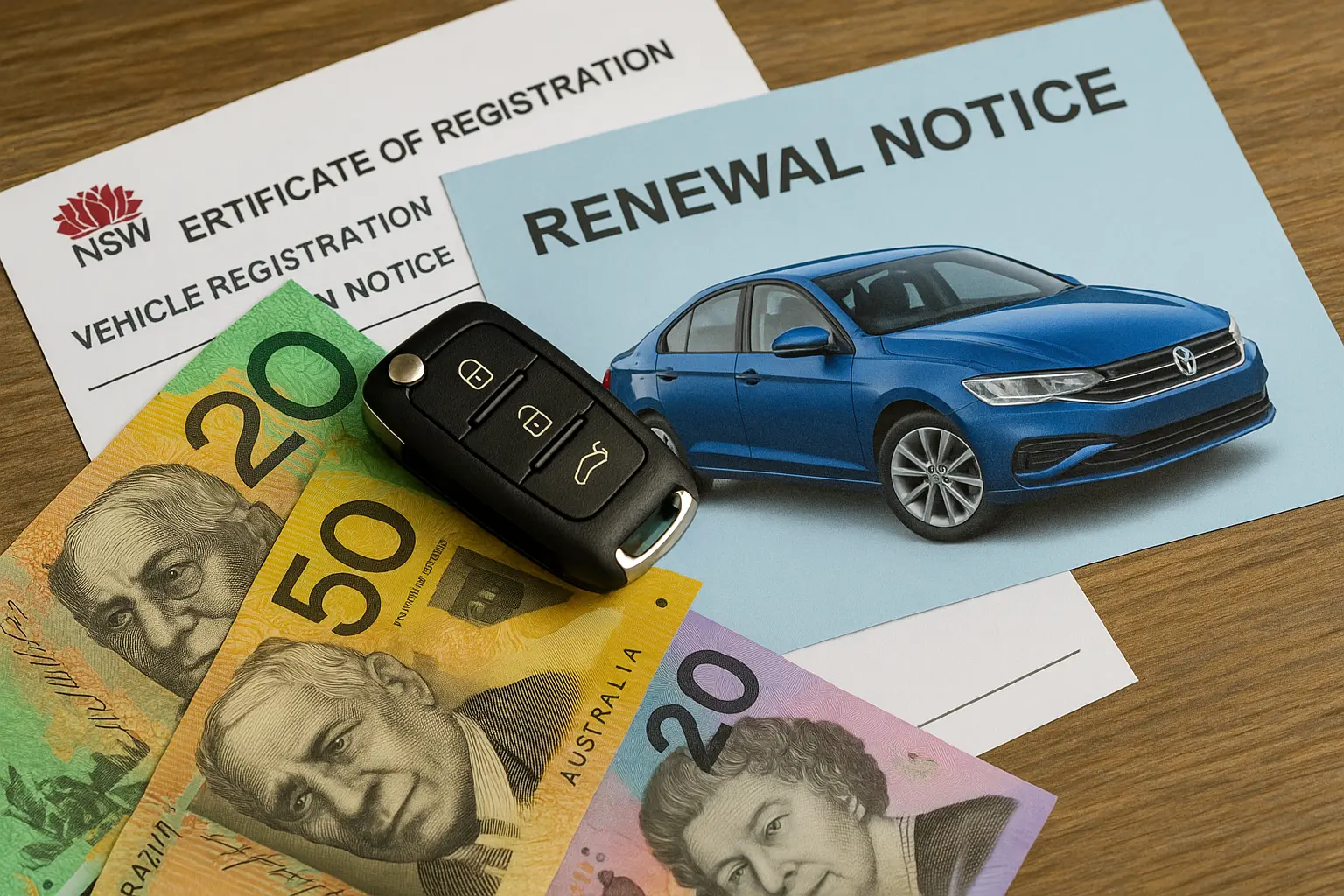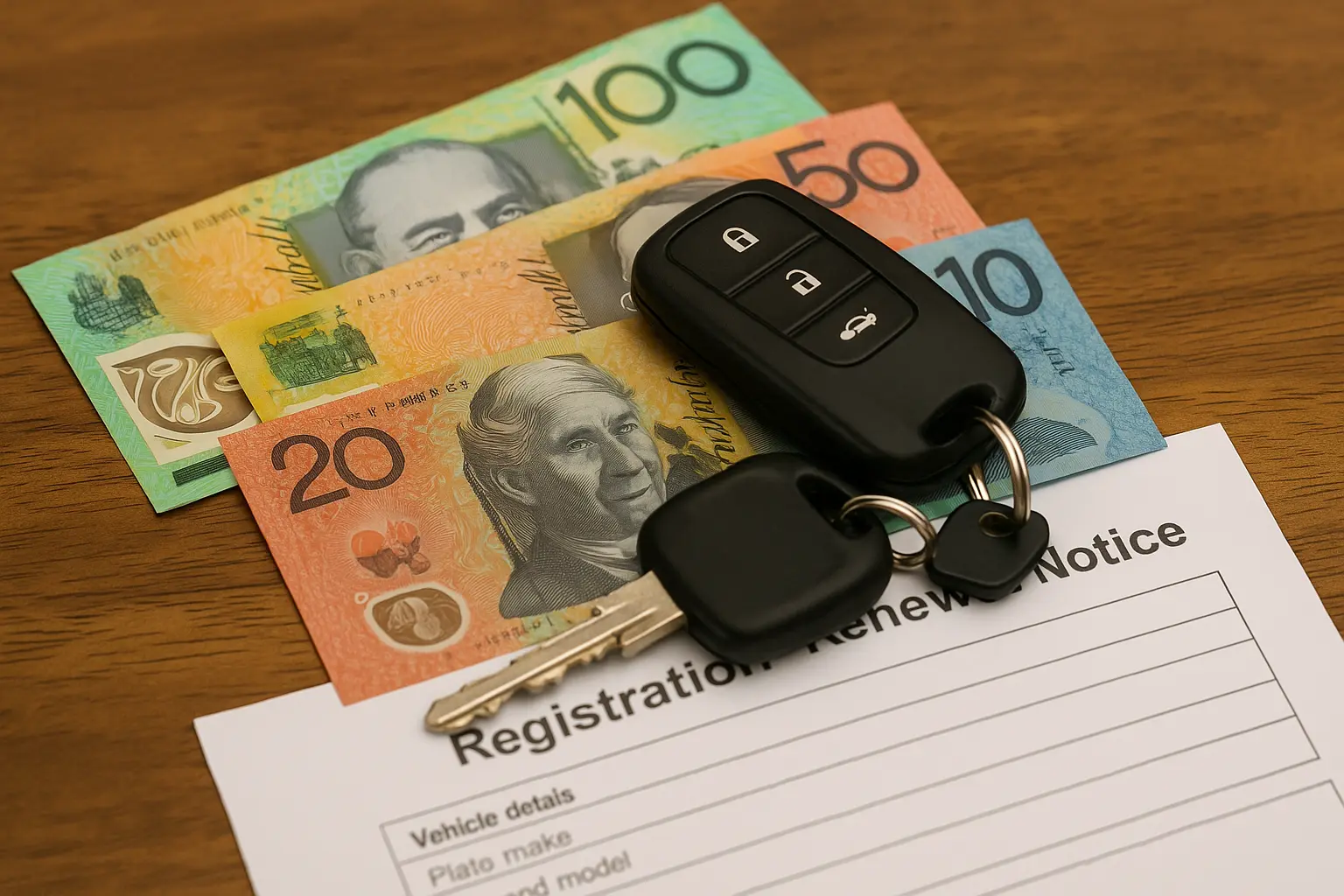Car registration, or "rego" as most Australians call it, is an unavoidable part of vehicle ownership. Whether you’ve just bought your first car or you’re renewing a long-time ride, understanding registration costs is crucial. The truth is, rego fees vary significantly between states and territories, and they’re made up of more than just the standard fee you see on your renewal notice.
This guide explores the ins and outs of car registration costs in Australia. From base fees and compulsory third party (CTP) insurance, to additional charges, exemptions, and renewal hacks, we’ll break down everything you need to know to keep your car legal and road-ready.

Why Car Registration Matters
Driving an unregistered vehicle in Australia is not only illegal but also dangerous financially. If you’re caught, you could face hefty fines, demerit points, and in the event of an accident, no insurance coverage. Registration fees fund important things like road maintenance, infrastructure, and compulsory insurance that protects injured drivers and pedestrians.
For many Australians, rego is one of the biggest ongoing expenses alongside insurance, fuel, and maintenance. Understanding the breakdown of these costs helps you budget smarter and potentially save money.
What Makes Up Car Registration Costs?
Car registration is not just a single fee. It’s a package of different charges:
Base Registration Fee – A flat amount set by the state government.
Compulsory Third Party (CTP) Insurance – Mandatory insurance that covers injury or death to people in accidents involving your car. Costs vary by state and insurer.
Motor Vehicle Tax – A charge based on your vehicle type, weight, and sometimes engine size or emissions.
Additional Levies – Some states add levies for road safety, emergency services, or administration.
The result? Two drivers in different states with identical cars can pay very different annual rego bills.
Car Registration Costs by State and Territory
New South Wales (NSW)
In NSW, registration includes:
Base fee (~$70)
Motor vehicle tax (ranges from ~$220 to $500+ depending on weight)
CTP insurance (average $450–$600 per year, varies by insurer and driver profile)
Tip: In NSW, you can compare CTP providers via the “Green Slip” calculator to save money.
Victoria (VIC)
Victoria’s rego fees are influenced by location (metro vs regional).
Base fee and TAC (Transport Accident Charge): ~$900+ for metro areas, ~$750+ for regional.
CTP insurance included in TAC, not separately purchased.
Tip: Regional residents pay noticeably less, so updating your address if you move can impact costs.
Queensland (QLD)
In Queensland:
Registration fee + traffic improvement fee (~$400–$500 for most cars)
CTP insurance purchased with rego (~$350–$500 annually)
Tip: QLD offers 6-month registration renewals, a handy budgeting tool.
Western Australia (WA)
WA fees are generally lower than east coast states.
Vehicle licence fee (~$250–$300 for standard cars)
CTP insurance (~$450+)
Admin fees (~$10–$20)
Tip: WA rego notices include a “stamp duty” for new registrations, which can surprise new car buyers.
South Australia (SA)
SA drivers pay:
Registration fee (~$160–$200)
CTP (~$300–$400)
Insurance is bundled with rego renewal, making it straightforward.
Tip: Pensioners receive discounts on rego fees in SA.
Tasmania (TAS)
Tasmania’s smaller population means lower infrastructure costs, reflected in rego prices.
Base fee (~$200)
Duty based on engine capacity (larger engines pay more)
CTP (~$300–$400)
Australian Capital Territory (ACT)
ACT drivers face some of the highest rego fees due to bundled services.
Registration (~$600+)
Road rescue levy, road safety levy, and other charges included
CTP insurance averages $500+
Northern Territory (NT)
In NT:
Registration fee (~$150–$200)
Motor vehicles tax (varies by weight, ~$300–$600)
CTP (~$300)
Tip: NT offers a “concessional registration” for remote residents and seniors.
Factors That Influence Rego Costs
Even within states, costs can vary depending on:
Vehicle Type: Heavier vehicles, luxury cars, or high-emission models attract higher charges.
Address: Some states charge different rates in metro vs regional areas.
Vehicle Age: In some cases, older cars may require extra safety checks (adding to renewal costs).
Insurance Profile: CTP insurers may vary premiums based on driver age, gender, and history.
Car Rego Renewal Guide
Renewing your registration is straightforward, but there are rules to keep in mind.
Renewal Periods: Most states offer 3-month, 6-month, or 12-month options.
Late Renewal: Driving with expired rego, even by a day, can result in fines. Some states offer a short grace period, but not all.
Inspections: NSW and a few other states require annual inspections (“pink slip”) for cars over five years old before renewal.
Payment Methods: Online, over the phone, via BPAY, or in person at a service centre.
Tips to Save on Car Registration
Shop around for CTP insurance where it’s available (NSW, QLD, ACT).
Choose shorter renewal terms if you’re budgeting week-to-week.
Update your residential address if you’ve moved to a cheaper region.
Take advantage of pensioner or concession discounts if eligible.
Keep your car well-maintained to avoid inspection failures and re-testing costs.
Hidden Costs in Car Registration
Many drivers only consider the renewal fee, but hidden costs include:
Stamp duty on new car purchases (can be thousands depending on value)
Number plate fees for new or custom plates
Inspection fees for roadworthy or safety certificates
Late payment fees if you miss the deadline
Car Registration and EVs in Australia
Electric vehicles (EVs) are shaking up the rego landscape. Some states offer discounts on registration to encourage adoption, while others are introducing road user charges to replace fuel excise.
For example:
VIC introduced a per-kilometre road user charge for EVs.
NSW and other states are considering similar schemes.
Incentives like reduced stamp duty or rego discounts are available in several jurisdictions.
Future of Car Registration in Australia
As EVs grow and road funding models shift, rego fees will evolve. Expect more states to explore distance-based charges, and possibly national reforms to standardise fees across Australia.
For now, staying across your state’s rules and renewal reminders is the best way to avoid fines and unexpected costs.
Final Thoughts
Car registration costs in Australia may seem complicated, but with the right information, you can plan ahead and avoid surprises. By understanding the breakdown of fees, shopping around for CTP where possible, and keeping an eye out for concessions, you’ll be able to manage one of the most important aspects of car ownership more effectively.
Whether you’re in NSW dealing with Green Slips, Victoria balancing TAC charges, or WA enjoying lower base fees, rego is part of life on Australian roads. Keeping informed is the key to staying legal, safe, and financially prepared.
Leave a comment
Your email address will not be published. Required fields are marked *




















